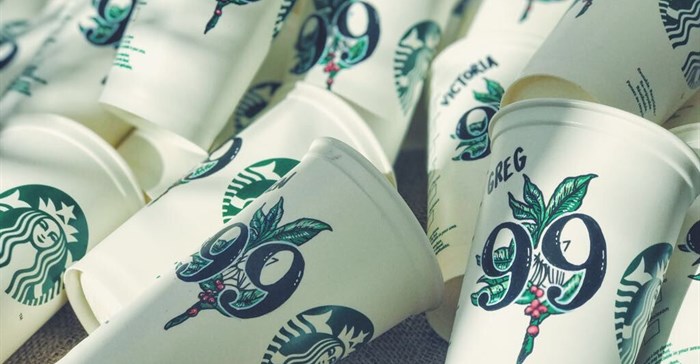
Related
Top stories




Marketing & MediaAds are coming to AI. Does that really have to be such a bad thing?
Ilayaraja Subramanian 21 hours


More news
















In London, Starbucks store manager and artist Becca Turner, also decorated Starbucks reusable cups and created a mural store window display to mark the occasion.
Starbucks is the largest coffee retailer to have 99% of its coffee supply chain verified as ethically sourced, working in partnership with Conservation International.
The cornerstone of Starbucks sourcing practices is its CAFE (Coffee and Farmer Equity) Practices programme, which was developed over 15 years ago, with Conservation International. The practices form a set of growing and buying guidelines that help farmers supplying Starbucks to produce coffee in a sustainable and fair way, and has already affected over one million farmers and workers across four continents.
CAFE Practices set out guidelines that mean any coffee purchased by Starbucks must meet the following standards:
• Economic – a transparent supply chain where coffee suppliers must be able to provide evidence of payments to coffee farmers
• Social Responsibility – Ensure safe and fair working and living conditions for workers and ensure access to medical facilities and children have access to education
• Quality - All Arabica coffee must meet Starbucks quality standards
• Environment Leadership – Help preserve and protect the farming land and water bodies
Bambi Semroc, senior strategic advisor, Center for Environmental Leadership in Business at Conservation International, said, “Conservation International has been working with Starbucks for over 15 years towards its commitment to sustainable coffee sourcing. Together, we have ensured – from coffee tree to cup – that 99% of Starbucks coffee is ethically sourced. We’re honoured to celebrate alongside Starbucks and look forward to working together in reaching 100%.”
Kelly Goodejohn, Starbucks director ethical sourcing, added, “The group has invested more than $100 million in supporting coffee communities and our comprehensive sourcing strategy means we can improve the resilience of our supply chain and ensure the long-term supply of high-quality coffees, as well as building stronger, enduring farming communities for generations to come. It’s fantastic to celebrate our verified 99% ethically sourced coffee with customers around the world but it is the last 1% that means so much, since we have the opportunity to scale our sustainable coffee model to coffee farming communities in new regions as we strive to reach our 100% goal.”